New ruling pauses closures and reaffirms that salmon aquaculture poses ‘no more than a minimal risk of harm’ to wild salmon
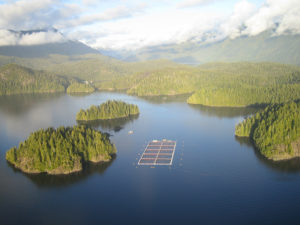
The Federal Court has ordered the Canadian federal government to set aside its decision to phase out salmon farms in British Columbia’s Discovery Islands and has upheld an earlier injunction granted on April 5, 2021. The ruling also reaffirmed conclusions from nine peer-reviewed reports that salmon aquaculture in British Columbia (B.C.) poses “no more than a minimal risk of harm to the Fraser River Sockeye salmon.”
In a 66-page ruling, Justice Elizabeth Heneghan found that former Minister of Fisheries, Oceans, and the Canadian Coast Guard Bernadette Jordan violated procedural fairness when she announced the closures via a news release.
“In my opinion, failure of the Minister to provide reasons in her Decision of December 16, 2020 amounts to a breach of procedural fairness,” wrote Justice Heneghan in the ruling. “A news release does not provide reasons. A news release is a means for a person, in this case either the Minister or DFO, to express a viewpoint of opinion. The consequences of the Decision in this case are significant and the Minister owed a duty to provide reasons.”
On December 17, 2020, the Minister of Fisheries, Oceans, and the Canadian Coast Guard announced in a news release that salmon farming in the Discovery Islands would be “phased out” within an 18-month period. Specifically, no further licenses would be issued and the introduction of new fish of “any size” to those fish farms during this period would be prohibited. It mandated that all fish farms would “be free of fish” by June 30, 2022, but that the existing fish at these sites could complete their growth cycles and be harvested.
In response, salmon farmers Mowi Canada West, Cermaq Canada, Grieg Seafood BC and 622335 BC Ltd applied for a judicial review of the government’s decision. The applicants argued that, without adequate notice, they were “deprived of an opportunity to make submissions, including submissions in response to the concerns of First Nations” and were “denied the opportunity for meaningful participation in consultation.”
Moreover, the applicants argued that the salmon farm closures would negatively impact the local economies of Indigenous and non-Indigenous coastal communities on Vancouver Island. As detailed in the ruling, Mowi provided evidence that, because of the government’s decision, 30 percent of its operations would be terminated within eighteen months. Likewise, Cermaq demonstrated that its Discovery Island sites represent 35 percent and 12 percent of its annual harvest volume. Grieg argued that the decision would result in a loss of approximately 5 percent of its annual production, in addition to other financial losses.
In total, the BC Salmon Farmers Association estimated that the government’s decision could wipe out up to 1,500 B.C. jobs and result in losses of more than CAD $386 million (USD $301 million) in annual economic output.
In her ruling, Justice Heneghan called the Minister’s response to the applicants’ submissions “inadequate” and “unsatisfactory,” and stated that the applicants “were not given a meaningful opportunity to provide submissions or respond to concerns in respect of the full scope of the decision.”
“The Applicants carry a heavy burden to show that the Decision of the Minister is unreasonable,” wrote Justice Heneghan. “I am satisfied that the Applicants met that burden. In the result, the applications for Judicial Review will be granted, the Decision of the Minister will be set aside and the injunction granted on April 5, 2021 will remain in effect.”
In a press release, the BC Salmon Farmers Association said it is “encouraged” by the Federal Court ruling.
“This is a positive development for the coastal Indigenous and non-Indigenous communities in which we operate, and the thousands of family-supporting jobs our sector sustains,” wrote the BC Salmon Farmers Association. “We will be reaching out to First Nations in whose territories we operate to review this decision and will have more to say in the following days and weeks ahead.”
Follow the Advocate on Twitter @GSA_Advocate
Now that you've reached the end of the article ...
… please consider supporting GSA’s mission to advance responsible seafood practices through education, advocacy and third-party assurances. The Advocate aims to document the evolution of responsible seafood practices and share the expansive knowledge of our vast network of contributors.
By becoming a Global Seafood Alliance member, you’re ensuring that all of the pre-competitive work we do through member benefits, resources and events can continue. Individual membership costs just $50 a year.
Not a GSA member? Join us.
Author
-

Lisa Jackson
Associate Editor Lisa Jackson lives in Hamilton, Ontario, Canada. Her work has been featured in Al Jazeera News, The Globe & Mail, The Independent, and The Toronto Star.
Tagged With
Related Posts
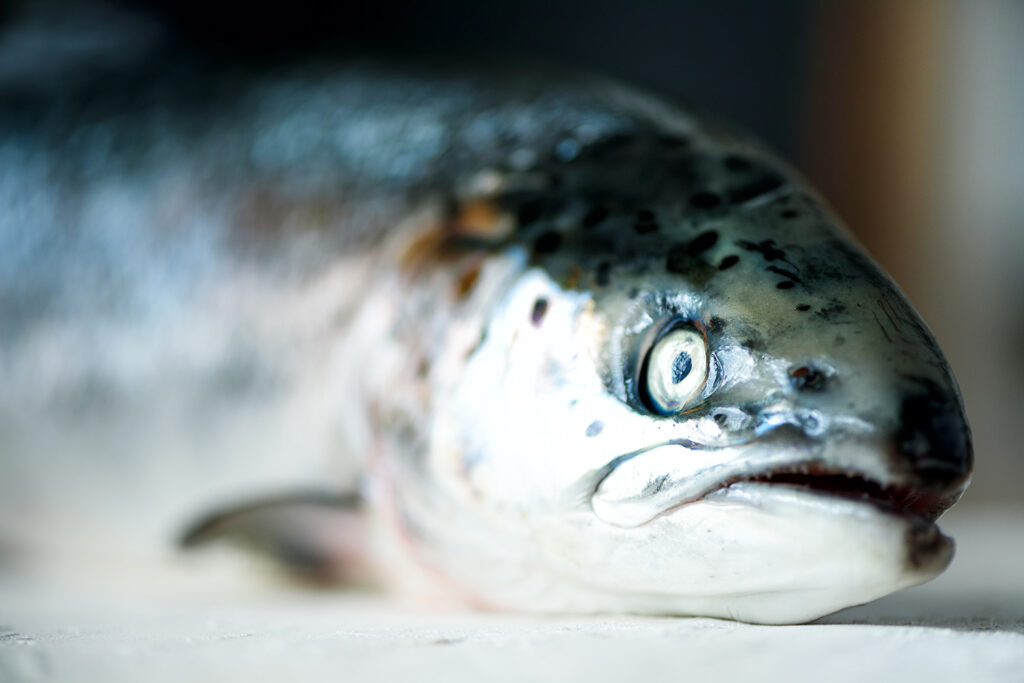
Intelligence
Canadians largely support ocean-based salmon farming, yet farms are being shut down
Amid a dizzying landscape of passions and politics, a recent survey showed the confusing messages Canadians are getting about salmon farming.
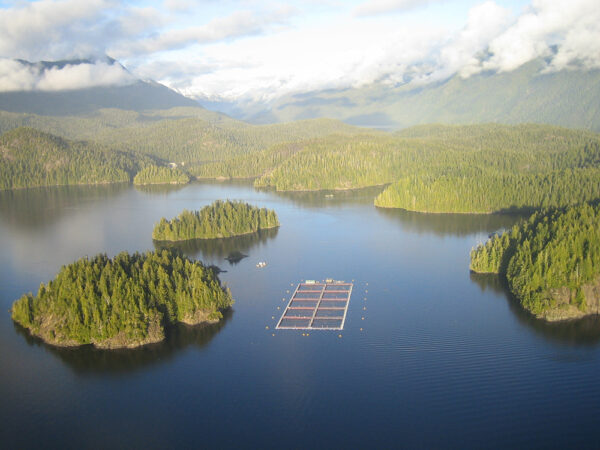
Intelligence
Canadian salmon farmers: ‘Leave us out of your shutdown’
The potential of a salmon-farming ban in Washington state is being monitored closely next door, in British Columbia, where many more salmon farms operate. But they’re not worried about a spillover effect.
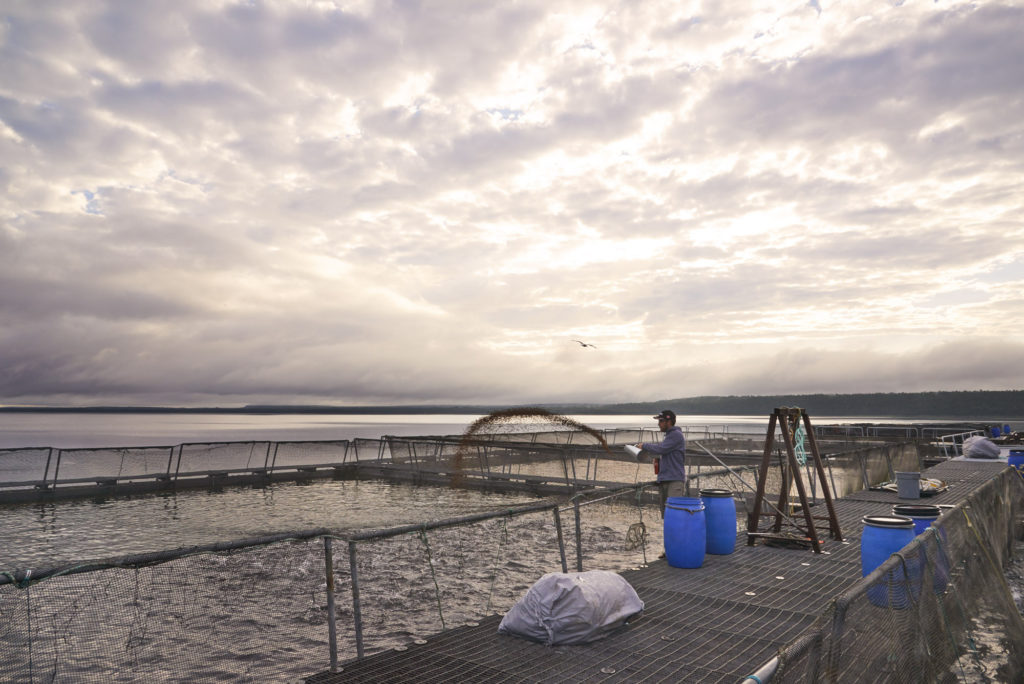
Responsibility
For Great Lakes aquaculture, it’s a tale of two countries
Canada and the United States may be friendly neighbors, but when it comes to aquaculture, the bordering countries take vastly different approaches to aquaculture in the Great Lakes.
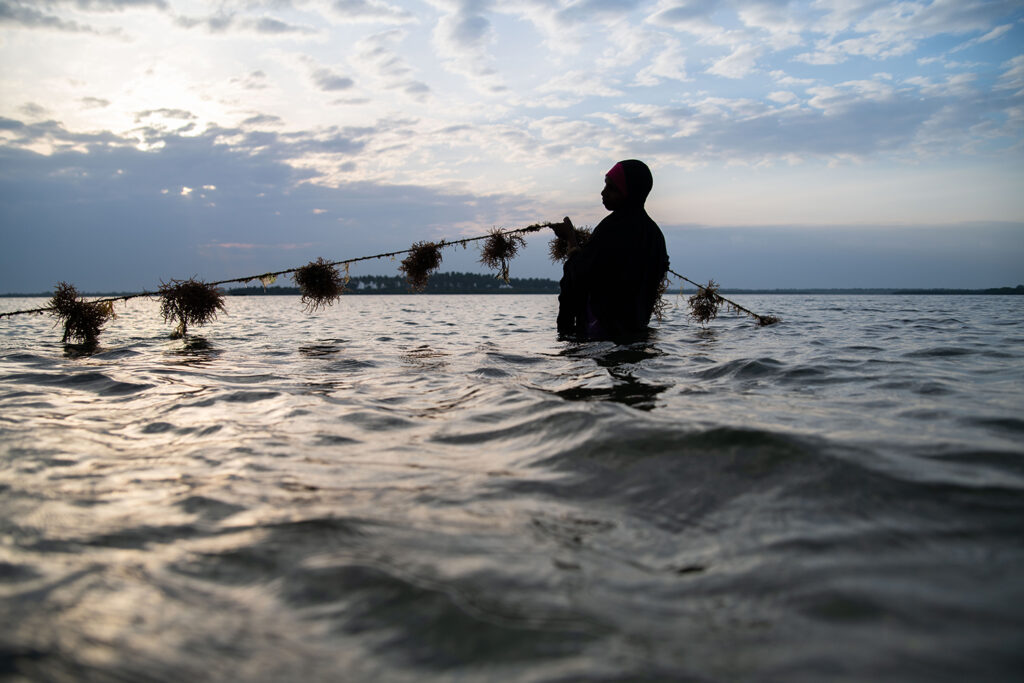
Responsibility
Climate change mitigation needs mariculture, new research concludes
NGO-academic collaborative study finds that mariculture “done right” can aid climate change mitigation by cutting greenhouse gas emissions.


